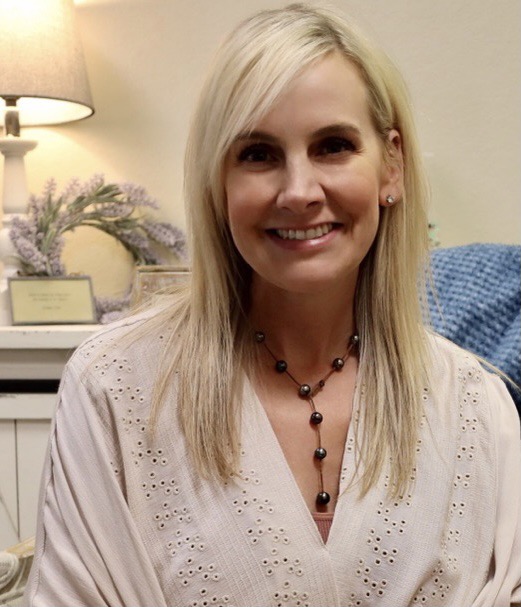Discover How Setting Healthy Boundaries Can Transform Your Relationships
- Tasha Devereaux, MA, LPC, NCC

- Aug 8, 2025
- 4 min read
Navigating relationships can be challenging. Often, we find ourselves overwhelmed or misunderstood in situations that should bring us joy. One effective tactic to manage these connections is setting boundaries. Establishing boundaries empowers you to create a safe space that fosters respect and understanding among your loved ones, ultimately enhancing your overall happiness.
Setting boundaries goes beyond simply saying "no." It involves recognizing your own needs and clearly communicating them to those around you. Boundaries can encompass many aspects of life, including time management, emotional well-being, and personal space. They allow you to articulate what is acceptable within your interactions, which is essential for healthy relationships.

Understanding Healthy Boundaries
Boundaries are critical markers of your physical, emotional, and mental limits, helping to clarify what behaviors you find acceptable. Understanding your boundaries is not about control; it speaks to your self-respect and self-awareness. Research shows that people with well-defined boundaries tend to have healthier relationships, as both parties feel safe and respected.
For example, a study from the University of California found that individuals who practiced setting boundaries reported a 30% increase in relationship satisfaction. By learning to respect your own boundaries, you build a strong foundation for more meaningful connections with others.
The Benefits of Setting Healthy Boundaries
Improved Communication
Establishing boundaries enhances the quality of communication in your relationships. With clear guidelines, you reduce the chances of misunderstandings. When you articulate your needs, you create a more open dialogue with your friends or partners.
For instance, consider a situation where you need to discuss an uncomfortable topic. Clearly stating, "I feel uneasy discussing this right now" can pave the way for more honest conversations. Research indicates that effective communication improves relationship satisfaction by 25%, making it essential to establish boundaries.
Enhanced Self-Respect
Setting healthy boundaries is a strong affirmation of your self-worth. Learning to say "no" to tasks that overwhelm you, or commitments that don't serve you, helps prioritize your well-being. A study from Psychology Today highlights that individuals who prioritize self-respect tend to experience a 40% improvement in overall mental health and happiness.
As you practice valuing your time and energy, you refine your ability to engage in healthier relationships. This leads to a greater understanding of what kinds of interactions are beneficial for your emotional health.
Recognizing Your Needs
To set effective boundaries, it's essential to identify your needs first. Think about past situations that have left you feeling uneasy. What were the key triggers? Acknowledging these occurrences can clarify the boundaries you need to put in place.
Consider maintaining a journal. Recording your feelings and experiences related to boundaries can help solidify your thoughts. This reflection not only simplifies your communication with others but also provides insight into your emotional landscape.

Types of Boundaries
Physical Boundaries
These boundaries relate to your personal space and desired levels of physical contact. For example, some people may be comfortable with hugs, while others prefer a wave. Upholding these preferences can significantly enhance your comfort in relationships.
Emotional Boundaries
Emotional boundaries focus on your feelings and respect for others' emotions. For instance, if talking about certain topics triggers negative feelings for you, it's vital to communicate that clearly to others, allowing for a healthier dialogue.
Time Boundaries
Time is one of our most valuable resources. By setting boundaries around how much time you spend with others, you effectively safeguard your personal time for self-care and leisure activities. This ensures that you maintain balance in your life.
Communicating Your Boundaries
Effective communication is crucial for successful boundary setting. Here are some practical strategies to help you articulate your needs:
Be Clear and Direct: Use “I” statements to express what you need. Instead of saying, "You always take my time away," try, "I need some time alone to recharge."
Be Consistent: Consistency reinforces boundaries and builds trust. Reiterate your boundaries calmly and clearly when necessary.
Be Ready for Resistance: Some may initially resist your boundaries. Approach these situations calmly, reiterating your needs with kindness and firmness.

The Impact of Not Having Healthy Boundaries
Lack of boundaries can lead to feelings of overwhelm or being taken advantage of. Relationships may become imbalanced, resulting in frustration and resentment. For example, research shows that 60% of people who don’t set boundaries report feeling burned out from their relationships.
It’s crucial to recognize signs of breached boundaries, which may include discomfort, chronic stress, or feeling that you always accommodate others at your expense. If you notice these symptoms, it's vital to take a step back and reassess your boundary-setting approach.
Final Thoughts
Mastering the art of setting boundaries is key to nurturing your relationships and promoting mental well-being. By establishing clear and respectful limits, you develop self-esteem, improve communication, and build deeper connections.
Boundaries are not about isolating yourself; they are tools for empowerment. They create space for healthy, meaningful relationships that support both your needs and those of your loved ones. Start the journey toward setting boundaries today, and witness the positive impact it can have on your relationships.
As you embrace this change, your surroundings will flourish with an atmosphere of respect, understanding, and love.
If you're contemplating starting therapy, consider scheduling a free 15-minute consultation today!

Comments